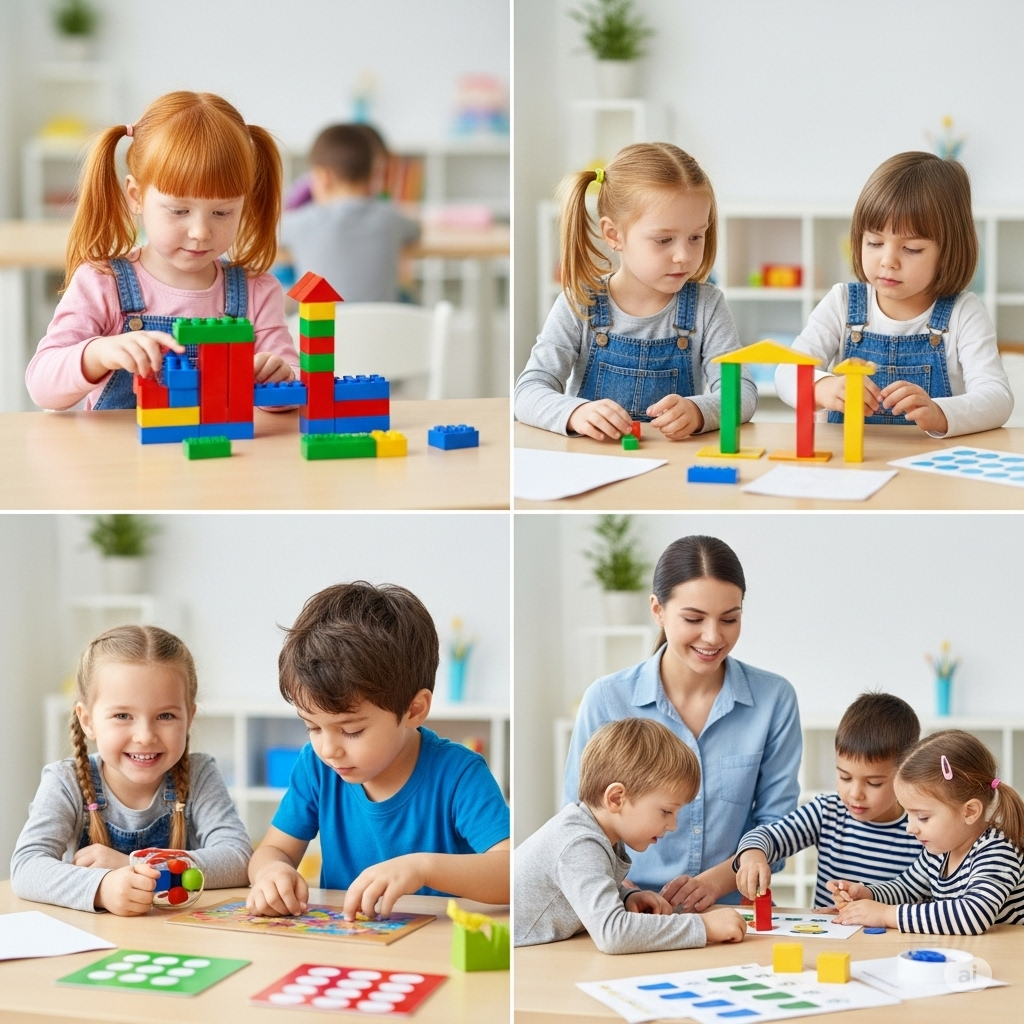Cognitive development refers to how children learn, think, explore, and figure things out. It includes memory, problem-solving, and decision-making — all skills that begin forming from birth. As a parent or caregiver, your role in nurturing this growth is fundamental. Early cognitive stimulation sets the stage for lifelong learning and critical thinking.
Why Early Cognitive Development Matters
The brain grows rapidly in the first years of life. In fact, 90% of brain development happens before age five. During this time, neural pathways are forming at lightning speed. With the right stimuli, these connections become stronger and more efficient.
Early stimulation:
- Boosts language acquisition
- Strengthens memory and concentration
- Encourages logical reasoning and creativity
- Builds emotional regulation and social understanding
Children who are cognitively stimulated early on tend to do better in school and adapt faster to new situations.
Talk to Your Child Constantly — Even as a Baby
Language and thought are tightly connected. One of the most effective ways to stimulate your child’s brain is simply by talking to them.
- Describe what you’re doing: “I’m washing the dishes. The water is warm.”
- Narrate the day: “Now we’re going to put on your shoes and go outside.”
- Respond to their babbling with interest and eye contact.
This kind of interaction builds vocabulary, boosts memory, and teaches communication skills.
Read Aloud Every Day
Reading aloud is one of the most powerful tools for cognitive development. Start from infancy — it’s never too early.
Benefits of daily reading include:
- Improved attention span
- Faster language development
- Stronger imagination and visualization
- Better understanding of cause and effect
Make it interactive: ask questions, point to pictures, and let your child turn pages.
Encourage Exploration Through Play
Play is how children process and learn about the world. The more varied and open-ended the play, the more it stimulates brain growth.
Great cognitive-boosting play includes:
- Building blocks or Legos: Enhances problem-solving and spatial reasoning
- Pretend play: Boosts creativity and empathy
- Matching games and puzzles: Builds memory and logic
- Cause-and-effect toys: Helps them understand sequences and consequences
Rotate toys to keep curiosity alive and avoid overstimulation.
Limit Passive Screen Time
Although educational apps exist, passive screen time (like watching videos) does little to support cognitive growth in young children. The best learning happens through interaction, not passive observation.
Instead of screens:
- Play music and dance together
- Cook together and talk about each ingredient
- Create crafts or art projects
- Play “what if” storytelling games
If screens are used, co-view and discuss what’s happening on screen to make it interactive.
Let Them Make Decisions
Decision-making, even on a small scale, strengthens a child’s ability to analyze, compare, and understand consequences.
- “Do you want the red shirt or the blue shirt?”
- “Should we read this book now or after lunch?”
- “Do you want apples or bananas as your snack?”
This builds confidence and independent thinking while training the brain to weigh options.
Use Everyday Moments as Learning Opportunities
The world is a learning lab. Use routine activities to challenge and grow your child’s mind.
- Grocery shopping: “Can you find something that’s green?”
- Cooking: “What happens if we mix these two ingredients?”
- Sorting laundry: “Can you match the socks by color?”
These tasks teach categorization, cause and effect, counting, and more — all through real-life experiences.
Sing, Rhyme, and Dance
Songs and rhymes build rhythm, memory, and phonemic awareness (a key pre-reading skill). Dancing develops coordination and spatial awareness.
Try:
- Nursery rhymes
- Call-and-response songs
- Fingerplay songs (like “Itsy Bitsy Spider”)
- Dancing to music with different tempos
These simple, joyful activities fuel complex brain development.
Foster Curiosity and Answer Questions
Children are naturally curious — and every question they ask is an opportunity to stimulate thinking.
- Answer patiently, even if it’s the 20th “Why?” of the day.
- If you don’t know, say, “Let’s find out together!”
- Encourage them to ask even more questions.
This kind of curiosity leads to lifelong learning habits.
Don’t Overload — Balance is Key
While stimulation is crucial, overloading a child with activities or constantly pushing academic content can cause stress or burnout.
- Allow unstructured play
- Let them get bored sometimes — it sparks creativity
- Observe their mood and adjust activities accordingly
Cognitive development flourishes best in a safe, low-pressure environment filled with love and gentle guidance.
Your Role: A Guide, Not a Professor
You don’t need to be a teacher — just a responsive, engaged adult. Through your presence, conversation, and encouragement, you’re already helping your child’s brain grow in powerful ways.
Be patient. Celebrate small victories. And remember: the everyday moments matter most.
